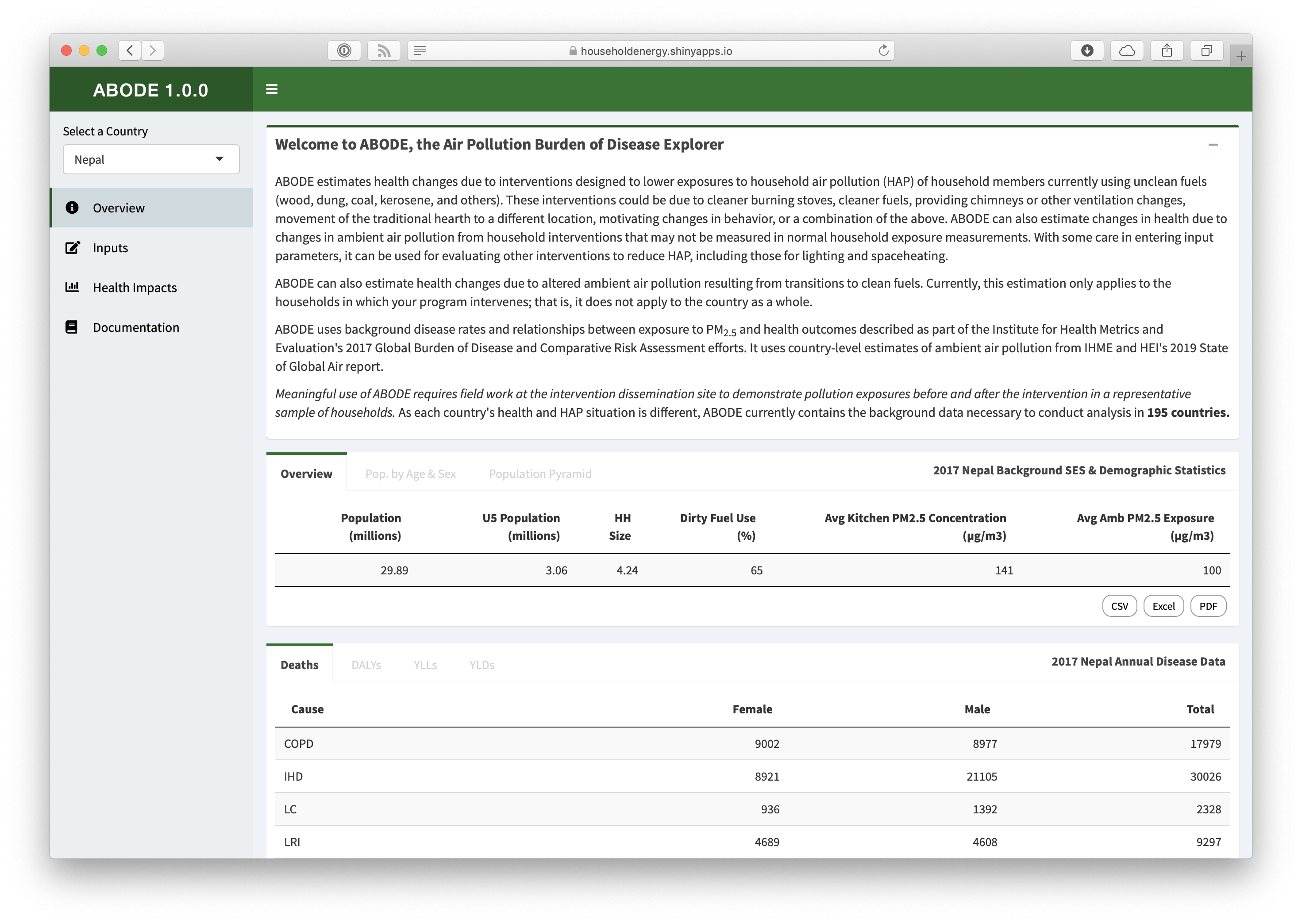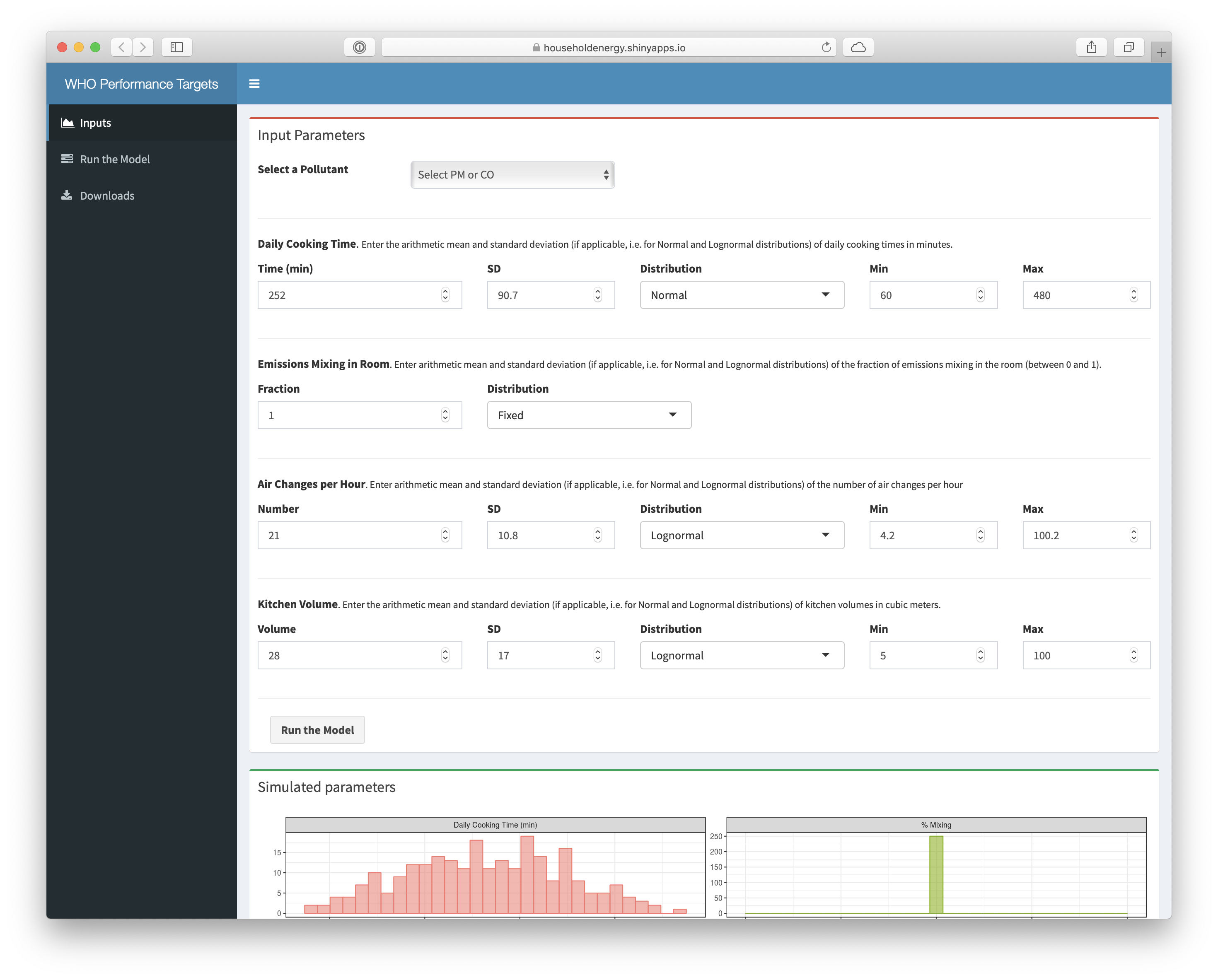
Access ABODE.
ABODE estimates health changes due to interventions designed to lower exposures to household air pollution (HAP) of household members currently using unclean fuels (wood, dung, coal, kerosene, and others). These interventions could be due to cleaner burning stoves, cleaner fuels, providing chimneys or other ventilation changes, movement of the traditional hearth to a different location, motivating changes in behavior, or a combination of the above. ABODE can also estimate changes in health due to changes in ambient air pollution from household interventions that may not be measured in normal household exposure measurements. With some care in entering input parameters, it can be used for evaluating other interventions to reduce HAP, including those for lighting and spaceheating.

Access TRAINSET.
TRAINSET is a graphical tool for labeling time series data. Labeling is typically used to record interesting points in time series data. For example, if you had temperature data from a sensor mounted to a stove, you could label points that constitute cooking events. Labels could be used as-is or as a training set for machine learning algorithms. For example, TRAINSET could be used to build a training set for an algorithm that detects cooking events in temperature time series data.

Access WHO HOMES Model.
The WHO HOMES model is an online implementation of a single compartment boxmodel appropriate for estimating PM or CO concentrations resulting from the combustion of solid fuels in homes. It contains a number of easy to manipulate parameters, like air changes per hour, cooking time, etc, that are used to recreate distributions from which Monte Carlo analyses can be performed. It can estimate exposures using a number of methods.

Access WHO Performance Targets Model.
The WHO PT model is an online implementation of a single compartment boxmodel appropriate for estimating PM or CO concentrations resulting from the combustion of solid fuels in homes. It contains a number of easy to manipulate parameters, like air changes per hour, cooking time, etc, that are used to recreate distributions from which Monte Carlo analyses can be performed.

Access HAPIT.
HAPIT estimates health changes due to interventions designed to lower exposures to household air pollution (HAP) of household members currently using unclean fuels (wood, dung, coal, kerosene, and others). These interventions could be due to cleaner burning stoves, cleaner fuels, other ventilation changes, motivating changes in behavior, etc. HAPIT currently uses background disease rates and relationships between exposure to PM2.5 and health outcomes described as part of the Institute for Health Metrics and Evaluation’s 2013 Global Burden of Disease and Comparative Risk Assessment efforts.